Meet Our 2021 Case Study Competition Winners
A team of students from the University of Tennessee at Martin won this year’s annual CSBS Community Bank Case Study Competition. It is the fourth year the school has entered the competition, which provides undergraduate students in all fields of study an opportunity to conduct original research and gain valuable first-hand knowledge of the banking industry.
The team of five examined how their partner institution, TriStar Bank of Dickson, Tenn., addressed two major themes of the past year: the Covid-19 pandemic and renewed calls for financial institutions to promote diversity and inclusion.
The students, joined by their faculty advisor John Clark, will present their findings at the 2021 Community Banking in the 21st Century Research & Policy Conference, sponsored by CSBS, the Federal Reserve Board of Governors and the FDIC. As they prepare to present at the conference, we asked the students, their advisors and community bank partners about what they learned from participating in the case study competition and how their findings will impact their thinking going forward.
Mr. John Clark
John Clark, a former community bank president, is the director of the Horace and Sara Dunagan Chair of Excellence in Banking at the University of Tennessee at Martin and served as faculty advisor to the winning case study team.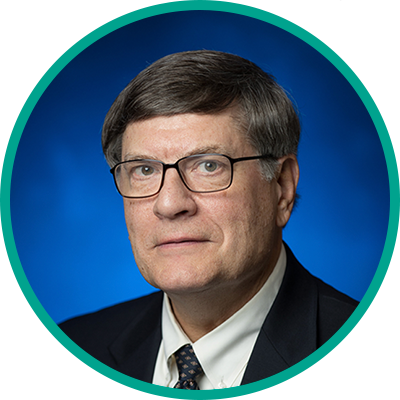
Why did your department decide to get involved in the case study competition?
After learning about the competition from my dean and after I did some investigation about it, our state banking commissioner, Greg Gonzales, invited me to be his guest at the 2017 fall CSBS Conference. I was able to attend the conference and was impressed with the whole program. I was very impressed with the Case Study Competition presentation. The Conference made me want to work toward the University of Tennessee at Martin entering the next competition.
What do you hope your students will take away from participating in the competition?
We have competed in the last four competitions. Each year our goals are to:
- Learn more about community banking in general
- Learn how to form an effective student team and complete a significant project as a team
- Interact effectively with the management team of a partner community bank
- Focus on the topic(s) of the case study and create a quality research paper on the bank and its way of coping with the challenges and/or opportunities related to the chosen topic
- Produce a quality research paper about a complex topic
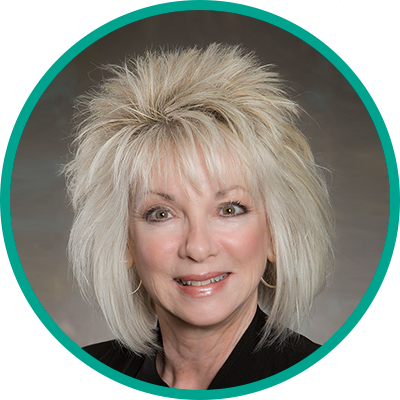
Dr. Lajuan Davis
Dr. Davis, Associate Professor of Business Communication at UT-Martin, helped the students hone their writing craft and learn how to distill the large amounts of information into an insightful, easy-to-read narrative.
What do you hope your students will take away from participating in the competition?
The students on this competition team learned quickly that being organized and working as a team was the only way to be viable contestants. The amount of research and time that the students put into this project was amazing, considering they all have full class loads. Their communication skills were taken to a new, improved level as they worked with the bank officials to glean information for the case study, and the students developed a newfound respect for individuals in the banking industry, their community involvement and their commitment to serving the clients’ banking needs.
Did Covid-19 impact how your students worked together and with their partner bank?
Covid-19 affected how everyone worked on this project as it affected everyone’s daily lives. The students were inundated with information about health precautions, safety, meeting requirements, classes, etc. The students’ involvement with the case study team helped to give them a sense of “normalcy” as they endeavored to process a lot of information in a short amount of time. The students learned to become focused on the tasks they were undertaking and to sort the information and tasks for the competition as needed. The students found purpose and intent to their work that they previously had not encountered. I called the team “my overachievers” because whatever they were asked to do, they did it and more. The students learned that communication can be accomplished in non-traditional ways (via Zoom) and the College had a classroom outfitted with special equipment so the Zoom meetings could be held efficiently. My confidence in this little “overachieving” team did not disappoint as their efforts garnered them a first-place win in this year’s competition. Victory was very sweet and special to this team and the University they represent.
Mr. Ted Williams
Ted Williams is the CEO and Vice-Chairman of the Board at TriStar Bank, a local community bank that he helped organize in 1999. He has served as a community banker in Dickson County for over 30 years.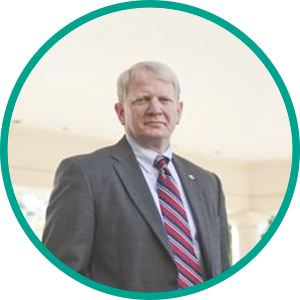
Why did TriStar Bank decide to participate in the CSBS Community Bank Case Study Competition?
We employed a young man who participated with UT-Martin’s team in 2018, and the banker sponsor of the team is a long-time friend who recommended we employ Drew in our bank. Drew said this about his experience on the team, “I competed in the case study competition in 2018 with UT-Martin. My experience working on the case study led me to choose banking as my career path once I graduated from college. It allowed me to see first-hand how a community bank operates from top-to-bottom and gave me a greater appreciation for community banking as a whole.”
What was the most rewarding aspect of working with the students?
Getting to know them and hearing their questions and insights was a blessing. They took their responsibilities seriously and they were truly engaged in what we were doing at the bank. Seeing them grow and learn about community banking was a treat as well. They are all just great young people, and I think their experience with this case study will be a highlight of their college career. Knowing that impact is tremendously cool.
Did any of the students’ findings surprise you?
They connected some dots for me on our loan portfolio changes that I had never noticed. Their desire to get the information right and their deep research on the PPP loans was impressive. Young people are sometimes categorized by self-absorbed and hard to employ, but these are great human beings who I would be glad to employ and work with in our bank. Whoever employs them in the future will secure top notch individuals.
If you had to choose just one of the students’ findings to emphasize, what would it be?
One of the points made by the students was about the positive impact on the community that financial education could make on families of low-and-moderate income households. Improving financial literacy in our community and bringing more people out of those categorized as “unbanked” would improve the quality of life for everyone, especially the families struggling the most in our communities.
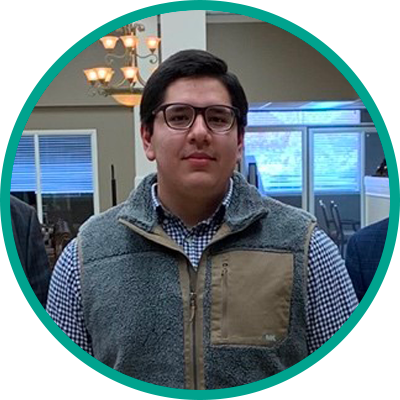
Refugio Palacios
Refugio is a finance major from Dyersburg, Tenn., who expects to graduate in December 2022.
Why were you interested in participating in the case study competition? What did you hope to learn from it?
I was interested in participating in the case study competition because I was curious as to what all went on behind the scenes of a community bank. I wanted an insight on what set a community bank apart from the big banks, such as Wells Fargo. I was able to learn about how our partnered bank approached the pandemic and how it did its best to serve the needs of the community while protecting its employees.
What sort of career do you plan to pursue? Has the case study competition impacted how you imagine your professional future?
I plan on pursuing a career in either commercial or investment banking. This case study competition has in fact impacted how I imagine my professional future. Prior to taking part in this case study, working in a community bank was not on my list of future career choices.
What is the most interesting finding for you from the case study?
The most interesting finding, in my opinion, was the overall determination in TriStar's employees in the PPP application submission process. The bank's employees were able to demonstrate their commitment to serving the bank's communities.
Savannah Pham
Savannah is a business communication information systems major from Halls, Tenn. She expects to graduate in May 2022.
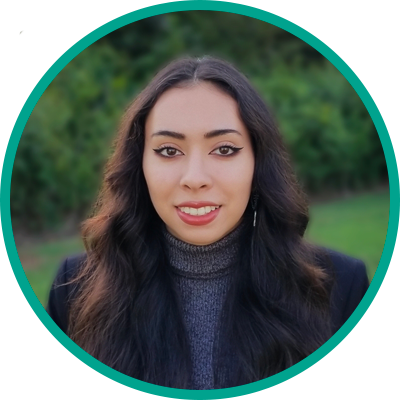
Why were you interested in participating in the case study competition? What did you hope to learn from it?
I was interested in participating in the case study competition because I enjoy writing and learning about new things. I also thought that learning how to work as a team with other students would be a good experience as well. I knew very little about community banks and the banking industry prior to participating in this competition, but I really enjoyed working with TriStar Bank and learning about how the current events impacted the banking industry regarding the pandemic and diversity, inclusion and economic fairness.
What sort of career do you plan to pursue? Has the case study competition impacted how you imagine your professional future?
I am not completely sure what kind of career I would like to pursue, but the case study competition has definitely broadened my understanding of the many types of jobs available in banking and how they all work together to provide excellent services to the community.
What is the most interesting finding for you from the case study?
The topics of the pandemic and diversity, inclusion and economic fairness were interesting to me. These subjects are current and talked about often, but I did not know how they could be related to banking until we talked to and learned from the officers at TriStar. It was interesting to learn about how the bank was able to successfully adapt to the unexpected changes during 2020 and 2021 in order to serve its community.
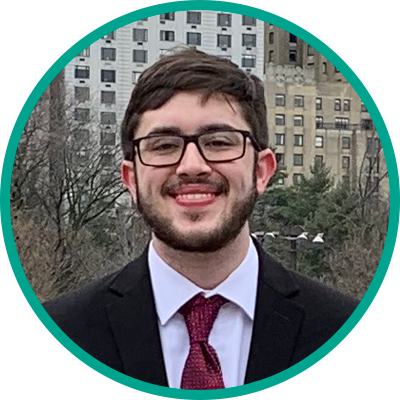
Seth Bishop
Seth Bishop is a finance and accounting major from Adamsville, Tenn., who expects to graduate in May 2022. He has spent the past two summers working for a small CPA firm.
Why were you interested in participating in the case study competition? What did you hope to learn from it?
When I was a sophomore, I remember hearing about the case study competition from upperclassmen. My junior year came around, and I was recommended by a faculty member to join the upcoming team. Once I learned the details of the competition – that we would be analyzing a community bank and how they handled the many challenges during the coronavirus pandemic – I knew I wanted to be a team member.
Prior to participating in the competition, my knowledge of banking, specifically community banking, was very limited. I hoped to learn more about the services community banks offer and how they operated from an internal perspective.
What sort of career do you plan to pursue? Has the case study competition impacted how you imagine your professional future?
I intend to sit for the CPA exam in the months following graduation. While I am interested in pursuing a career in public accounting, the case study competition motivated me to think about banking career paths. It was very eye-opening for me to see how much a community bank does to build relationships with its customers and community.
What is the most interesting finding for you from the case study?
The bank we analyzed was very involved in the first round of PPP lending. I was interested in learning about their involvement since it was from a banking perspective, as I dealt with PPP loans from an accounting perspective during the summer. I greatly enjoyed the stories about the many businesses the bank helped and the efforts they took to help them. Our PPP findings demonstrated the commitment this community bank took to provide some stability to people when the world around them was scattered.
McKenzie Reagor
McKenzie is an agricultural business major from Karnak, Ill. She expects to graduate in May 2022.
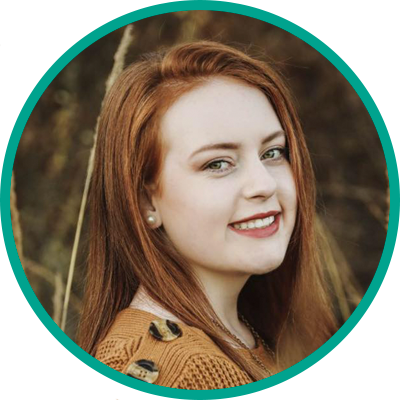
Why were you interested in participating in the case study competition? What did you hope to learn from it?
I was interested in the case study competition to gain a better understanding of the banking industry and experience. I hoped to learn about the functionality of a bank and what it takes to be successful.
What sort of career do you plan to pursue? Has the case study competition impacted how you imagine your professional future?
I am interested in work in the agricultural credit industry, either in finance or sales position, but after my experience in the case study competition I have expanded my search to include opportunities as an agricultural lender in a bank.
What is the most interesting finding for you from the case study?
A successful community bank is involved in more than just financial obligations, they play a pivotal role in setting a tone for the community. TriStar bank does an excellent job in being more than just a financial provider by being an actual face in the community through service projects, events and lending a helping hand.
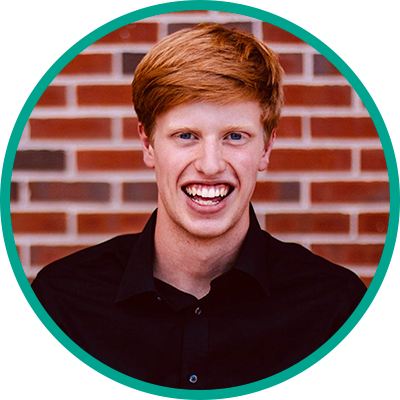
Benjamin Beard
Benjamin Beard is a finance and accounting major from Union City, Tenn., who expects to graduate in May 2022. He currently works at Discovery Partners Investment Center in Union City.
Why were you interested in participating in the case study competition? What did you hope to learn from it?
I was able to interact with older students who really enjoyed and spoke highly of the experience. Also, I had worked with our faculty advisor, Mr. John Clark, before and really enjoyed working with and learning from him. I hoped to gain a deeper understanding of the inner workings of a bank specifically, but also the inner workings of an organization. I believe the topics from the competition provided insight as to how all businesses had to respond to 2020.
What sort of career do you plan to pursue? Has the case study competition impacted how you imagine your professional future?
My current plan is to work for Discovery Partners Investment Center, which is an investment advisor firm in northwest Tennessee. There, I plan on becoming a licensed financial advisor.
What is the most interesting finding for you from the case study?
One of the most interesting findings was how committed our partner bank, TriStar, was to their community. From talking with the bank executives, it was very evident that TriStar is focused on how the bank can best serve its community.
Get Updates
Subscribe to CSBS
Stay up to date with the CSBS newsletter